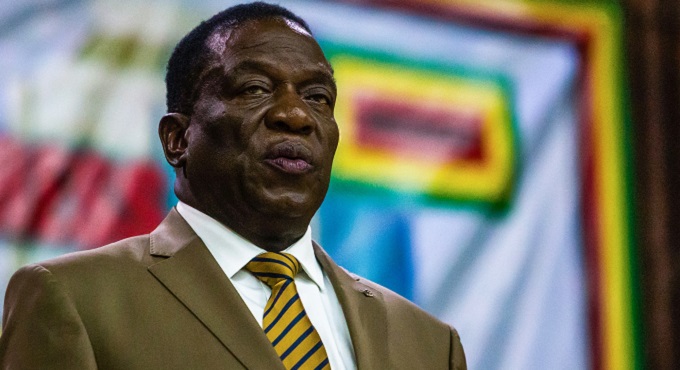Minister dissolves Zimra board

Prosper Ndlovu, Business Editor
THE Minister of Finance and Economic Development, Professor Mthuli Ncube, yesterday dissolved the Zimbabwe Revenue Authority (Zimra) board and outlined bold fiscal measures aimed at reducing the budget deficit, stabilising the economy and restoring investor confidence.
The termination of the term of the current board is with immediate effect while proposed names of a successor board will be announced in due course.
Prof Ncube said the decision was meant to improve governance of the tax authority and in the meantime, Zimra senior management will be reporting directly to Treasury.
He directed senior Zimra staff to cease all recruitment of new personnel until a new board was in place.
Expanding revenue collection, slashing Government expenditure, tackling internal and external debt, transforming parastatals and addressing external debt top Treasury priorities, as Government moves to address immediate constraints facing the economy.
In a statement on measures to reverse fiscal dis-equilibrium, Prof Ncube said several risks and challenges were standing on path to progress and need to be tackled head-on. While Zimbabwe’s economy is projected to grow by 6,3 percent against a budget estimate of 4,5 percent this year, he said reforms would be swiftly carried out to foster inclusive growth. These will be anchored on arresting foreign currency and cash shortages, budget deficits, inflation pressures on the back of pricing distortions, infrastructure deficiencies and a weak social service delivery system.
“These challenges are not insurmountable. These challenges call for urgent reforms. It cannot be business as usual. Bold decisions need to be taken on the reforms front in order to stimulate growth and sustainable development,” said Prof Ncube.
He said the budget deficit had become the biggest elephant in the room thereby posing a destabilising effect not only to the financial sector but to the rest of the economy.
Prof Ncube said financing of the deficit through domestic borrowing, use of instruments like Treasury Bills, overdraft with the Central Bank, cash advances, arrears and loans from the private sector was not sustainable for the economy.
“Such a financing mechanism is crowding out the private sector, hence constraining production. This also increases money supply in the economy translating into exchange rate mis-alignment and inflationary pressures now at 4.9 percent, as at August 2018,” he said.
“Similarly, the high deficit has ignited expansion of domestic debt from US$275.8 million in 2012 to current levels of US$9.5 billion against US$7.4 billion external debt. This brings total public debt to US$16.9 billion.”
In view of the given constraints, Prof Ncube said, macro-economic and fiscal stabilisation was critical and urgent for business and investment growth and improvement of living standards.
As such Government will effectively limit the use of the RBZ overdraft facility, which has spiralled to $2,3 billion, way above $763 million statutory limit as of August 2018, said the minister.
Treasury will also curtail advances to Government in line with Section 11(1) of the Reserve Bank Act [Chapter 22:15], which states that borrowing from the Reserve Bank shall not exceed 20 percent of the previous year’s Government revenues at any given point.
The issuance of Treasury Bills, which have increased from US$2.1 billion in 2016 to a cumulative US$7.6 billion by end of August 2018, will also be curtailed as it has become a huge cost to Government.
“Excessive issuance of short-term debt instruments at high interest rates also crowds out the private sector and compounds the increase in Government recurrent expenditure,” Prof Ncube said.
Going forward, the Minister said, Treasury would seek to finance Government’s vital socio-economic development programmes using instruments that “crowd in” the private sector, including public private partnerships or Government guarantees to financial institutions.
“Such guarantees will only be a contingent liability to Government, unlike Treasury Bills that have a direct and immediate cashflow implication on Government,” Prof Ncube said.
The Minister said any issuance of Treasury Bills, in the future, would only be through the auction system, which is a more market oriented system.
He said issuance of publicly traded infrastructure bonds was preferable in order to crowd in the private sector and diaspora participation in national infrastructure programmes.
“This will contribute to deepening the fixed income market,” said Prof Ncube.
The above measures draw inspiration from President Mnangagwa’s recent State of the Nation Address that is anchored on a vision of making Zimbabwe an upper middle-income economy by 2030 and seek to complement and support the Monetary Policy measures that have been announced by the Governor of the Reserve Bank of Zimbabwe.
On the revenue collection front, Prof Ncube said the increase in informalisation of the economy and huge increase in electronic and mobile phone-based financial transactions and RTGS transactions necessitate a need to expand tax collection by ensuring the tax collection points were aligned with electronic mobile payment transactions and RTGS system.
According to Treasury, so far this year, 1.7 billion electronic transactions went through compared to 50 million four years ago.
“I hereby review the Intermediated Money Transfer Tax from 5 cents per transaction to 2 cents per dollar transacted, effective 1 October 2018,” said Prof Ncube who has since directed financial institutions, banks, Zimra and telecommunication companies to extend the collection to all electronic financial transactions.
Prof Ncube said Government would forge ahead with its reforms of State owned enterprises to improve their viability and also strengthen the public private partnership character to generate much need revenue to Government.
He also stressed the need to accelerate processes of re-engagement with international partners and creditors in order to clear arrears on external debt.
Following the roadmap developed in Lima, Peru, Government is in dialogue with international financial institutions who are its creditors, seeking to eventually clear the US$2.5 billion owed to the African Development Bank, the World Bank and the European Investment Bank.
Treasury is also engaging key Paris Club creditors with a view to restructuring about US$2.8 billion owed to them.
“Such debt resolution will help restore the international credit standing of Zimbabwe, resulting in improved access to new external credit lines and investment flows,” said Prof Ncube.
He also said measures were being put in place to stabilise the fuel market by creating a world-class “Regional Fuel Dry Port” out of the Mabvuku Loading Gantry and Msasa Depot fuel storage facilities.











Comments